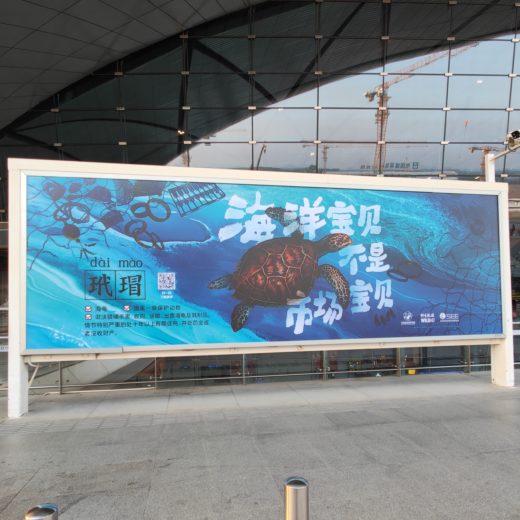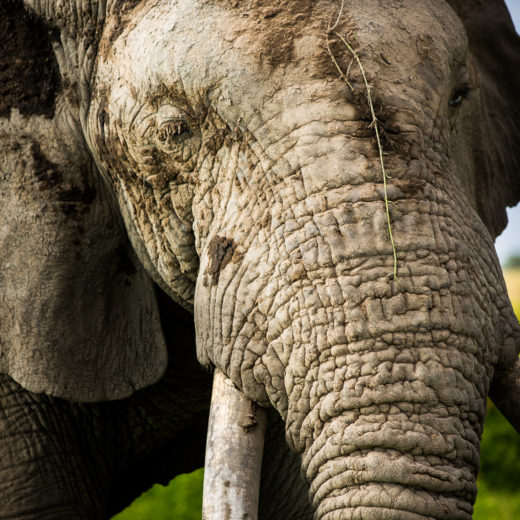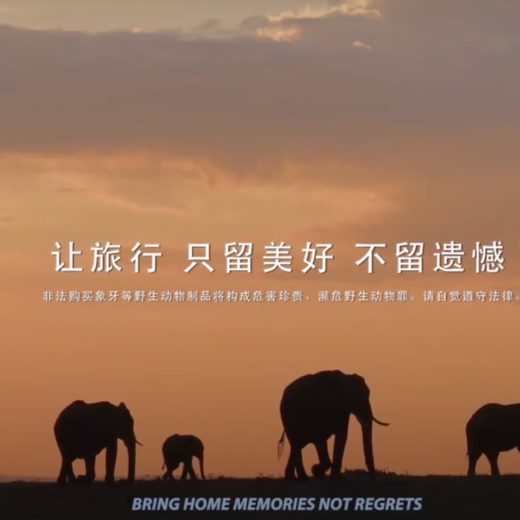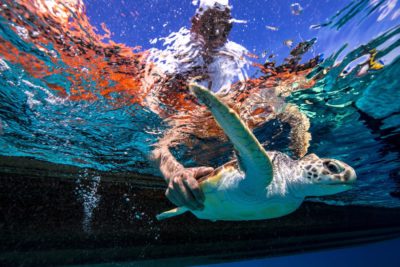
In a new effort to protect increasingly endangered sea turtles, WildAid launched a new campaign to reduce demand for sea turtle products in China.
All seven species of sea turtles face a wide range of threats including habitat loss, ocean pollution and plastic debris, bycatch, and the consumption of their meat, eggs, and products made from their shells. All species are listed on CITES Appendix I, prohibiting any form of trade in their products. Yet, a significant illegal trade continues around the world, primarily in Asia and Central America.
These threats, along with an overview of the illegal trade focusing on China, are outlined in a WildAid report published today, Sea Turtles: An Uncertain Future.
WildAid released a new series of TV messages and billboards featuring popular actor Liu Ye and his wife Anais Martane to raise awareness about the threats while calling on the public to stop buying sea turtle products. Speaking at the launch event this week, Liu Ye said “we can all do something really simple to help protect sea turtles, and that is simply not buying sea turtle products. We should all also reduce our use of plastics, and keep plastic waste away from coastlines.”
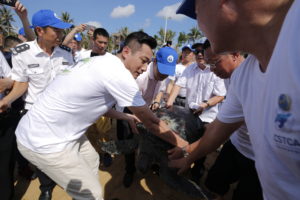

WildAid has also partnered with multiple Chinese government agencies on new measures that will both protect habitat and reduce demand for sea turtle products. A new “Sea Turtle Alliance”, spearheaded by the Fisheries Resource Management Bureau under the Ministry of Agriculture and Rural Affairs along with a wide range of government agencies, academic institutions, and NGOs, will help focus a new emphasis on improving management of protected areas, combatting illegal trade, and increasing public awareness on the plight of endangered sea turtles.
Recent years have seen a high number of trade networks operating around the Coral Triangle, the South China Sea, and the border areas of China and Vietnam. Since 2013, a reported 1,100 live sea turtles or their taxidermies have been confiscated from illegal smugglers on the open seas in the region. Hawksbill turtles are often sold as whole taxidermies or their shells are made into products including jewelry, musical instruments, and other collectibles.
A WildAid survey of 1,500 people in Beijing, Shanghai, Guangzhou, Beihai, and Sanya found that 17% of respondents have purchased sea turtle products in the past, and 22% expressed interest in purchasing the products in the future.
Nearly half of consumers bought the products as souvenirs, with 69% of purchases taking place at domestic souvenir shops, the majority upon recommendation by their tour group guide. Only 57% of respondents knew that it was illegal to purchase sea turtle products in China.
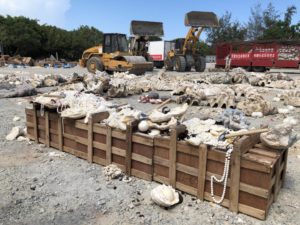

Once found throughout southern China, sea turtles are rapidly disappearing from its coastline, now only found in a handful of areas, including Hainan. As part of the sea turtle alliance launch event, 10 sea turtles were released back into the wild with GPS trackers to help monitor their movements and improve conservation efforts. Chinese Fisheries authorities destroyed a stockpile of confiscated sea turtle products along with other illegal marine products including giant clams, corals, sea horses and more during the event.
Stay in touch and get the latest WildAid updates.
SIGN UPAbout WildAid
WildAid is a non-profit organization with a mission to protect wildlife from illegal trade and other imminent threats. While most wildlife conservation groups focus on protecting animals from poaching, WildAid primarily works to reduce global consumption of wildlife products such as elephant ivory, rhino horn and shark fin soup. With an unrivaled portfolio of celebrity ambassadors and a global network of media partners, WildAid leverages more than $308 million in annual pro-bono media support with a simple message: When the Buying Stops, the Killing Can Too.
Journalists on deadline may email communications@wildaid.org
